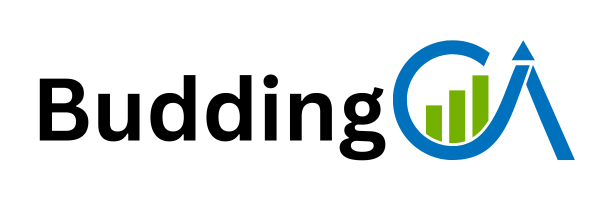When you step into an interview room for an accountant position, one of the first and most important questions you are likely to face is: “Can you please introduce yourself?”
Though it sounds simple, this question carries great weight. Your response is not just a formality. It shapes the interviewer’s first impression and sets the tone for the entire interview. A well-prepared self introduction can open doors to a smooth and successful interview experience.
In this article, we will explore how you can confidently introduce yourself in an accountant interview, making sure you leave a positive and lasting impression.
Why Is Self Introduction Important in an Accountant Interview?
Before diving into how to introduce yourself, it’s important to understand why this question matters so much.
- Showcases Your Communication Skills:
As an accountant, you need to explain complex financial information clearly to managers, clients, or auditors. The way you introduce yourself shows if you can communicate effectively and professionally. - Provides an Overview of Your Career:
Interviewers want a snapshot of your qualifications, experience, and skills relevant to the accounting role. Your introduction tells them your story concisely. - Reveals Your Personality and Confidence:
Beyond technical knowledge, accounting roles require discipline, attention to detail, and teamwork. How you carry yourself while introducing gives clues about your personality and soft skills. - Guides the Interview Flow:
Interviewers often pick specific points from your introduction to ask detailed questions. So, your introduction can guide the direction of the interview.
The Four-Step Framework for a Perfect Self Introduction
To make your self introduction impactful, it helps to have a clear structure. A proven approach is the four-step framework:
1. Background and Education
Start by stating your full name and where you come from. Next, briefly mention your educational qualifications, focusing on your accounting credentials.
If you have completed the Chartered Accountancy (CA) qualification, or have a degree like B.Com, MBA in Finance, or any relevant certification, mention it here.
Example:
“Good morning, my name is Priya Sharma. I am from Delhi and have recently completed my Chartered Accountancy final exams. Prior to that, I completed my Bachelor of Commerce from Delhi University.”
This sets a clear context for the interviewer about your academic background.
2. Professional Journey and Experience
Next, summarise your work experience relevant to the accounting role. If you are a fresher, talk about your articleship or internships, highlighting key responsibilities and learning areas.
Mention the industries or companies where you have worked, if applicable.
Example:
“During my articleship at XYZ & Co., a reputed auditing firm, I gained practical experience in statutory audits, tax filings, and financial statement preparation for clients in manufacturing and IT sectors.”
This part shows that you have hands-on exposure and understand real-world accounting work.
3. Key Skills and Strengths
Focus on your core competencies that match the job requirements. For an accountant, skills such as taxation, auditing, financial analysis, compliance, and accounting software proficiency matter.
Highlight any technical skills like advanced Excel, SAP, Tally, GST filing, or financial modelling.
Example:
“I am proficient in GST compliance, direct and indirect taxation, and have good command over ERP systems like SAP and accounting software such as Tally. My strengths include attention to detail and analytical thinking.”
Keep it relevant to the specific role you are applying for.
4. Career Goals and Why You Are a Good Fit
Finally, share your current goals and why you want to work with the company. Align your aspirations with what the company needs.
This part shows that you have researched the company and are motivated.
Example:
“I am eager to apply my skills in taxation and audit in a dynamic organisation like yours, where I can contribute to financial accuracy and compliance. I look forward to growing my expertise while adding value to your finance team.”
End on a positive note, inviting further conversation.
Tips to Deliver Your Self-Introduction Confidently
Even the best introduction can lose its effect if not delivered well. Here are some practical tips:
1. Practice But Don’t Memorise
Rehearse your introduction multiple times so you can speak smoothly. But avoid memorising it word-for-word. You want to sound natural and conversational, not robotic.
2. Maintain Positive Body Language
Make eye contact, smile gently, and keep an upright posture. These small cues build rapport and reflect confidence.
3. Speak Clearly and at a Moderate Pace
Don’t rush your words. Speak slowly and clearly so the interviewer can understand you easily.
4. Be Prepared for Follow-up Questions
Your introduction will likely prompt questions. Be ready to elaborate on your experiences or skills you mention.
5. Tailor Your Introduction
Adjust your introduction slightly based on the company and role. For example, if applying to a firm focused on audits, highlight your audit experience more.
Sample Self-Introduction for an Accountant Interview
Here is an example putting all the above points together:
“Good morning. My name is Ankit Verma, and I am from Bengaluru. I completed my Chartered Accountancy in 2024 and hold a Bachelor’s degree in Commerce from Bangalore University. During my three-year articleship at ABC & Co., I gained hands-on experience in statutory audits, taxation, and financial reporting across clients in the manufacturing and service sectors.
I am proficient in GST filing, direct and indirect taxation, and familiar with accounting software like Tally and ERP systems such as SAP. I pay strong attention to detail and enjoy analysing financial data to help organisations maintain compliance and improve accuracy.
I am keen to apply my skills in a reputable firm like yours and contribute to your finance team’s success. I look forward to learning and growing in a dynamic environment where I can add value with my knowledge and dedication.”
Common Mistakes to Avoid
- Being too long: Keep your introduction to about 1-2 minutes. Avoid irrelevant details.
- Sounding rehearsed: Speak naturally, not as if you’re reading from a script.
- Focusing only on academics: Experience and skills matter just as much.
- Not linking goals to the company: Show that you want to work specifically for them.
- Lack of confidence: Nervousness can distract the interviewer. Practice to boost confidence.
Final Thoughts
Your self introduction is more than just answering a question. It is your first opportunity to create a strong personal brand during the interview. With the right structure, clarity, and confidence, you can set a positive tone for the rest of your accountant interview.
Remember the four-step framework:
Background → Experience → Skills → Career Goals
Keep it concise, tailored, and natural. With practice, your self introduction will become a powerful tool to showcase the best version of yourself.
All the best for your interview journey!
Calling all CA dreamers!
🔴 Are you tired of searching for the perfect articelship or job?
Well, fear no more! With 10K+ students and professionals already on board, you don't want to be left behind. Be a part of the biggest community around! Join the most reliable and fastest-growing community out there! ❤️
And guess what? It’s FREE 🤑
✅ Join our WhatsApp Group (Click Here) and Telegram Channel (Click Here) today for instant updates.




